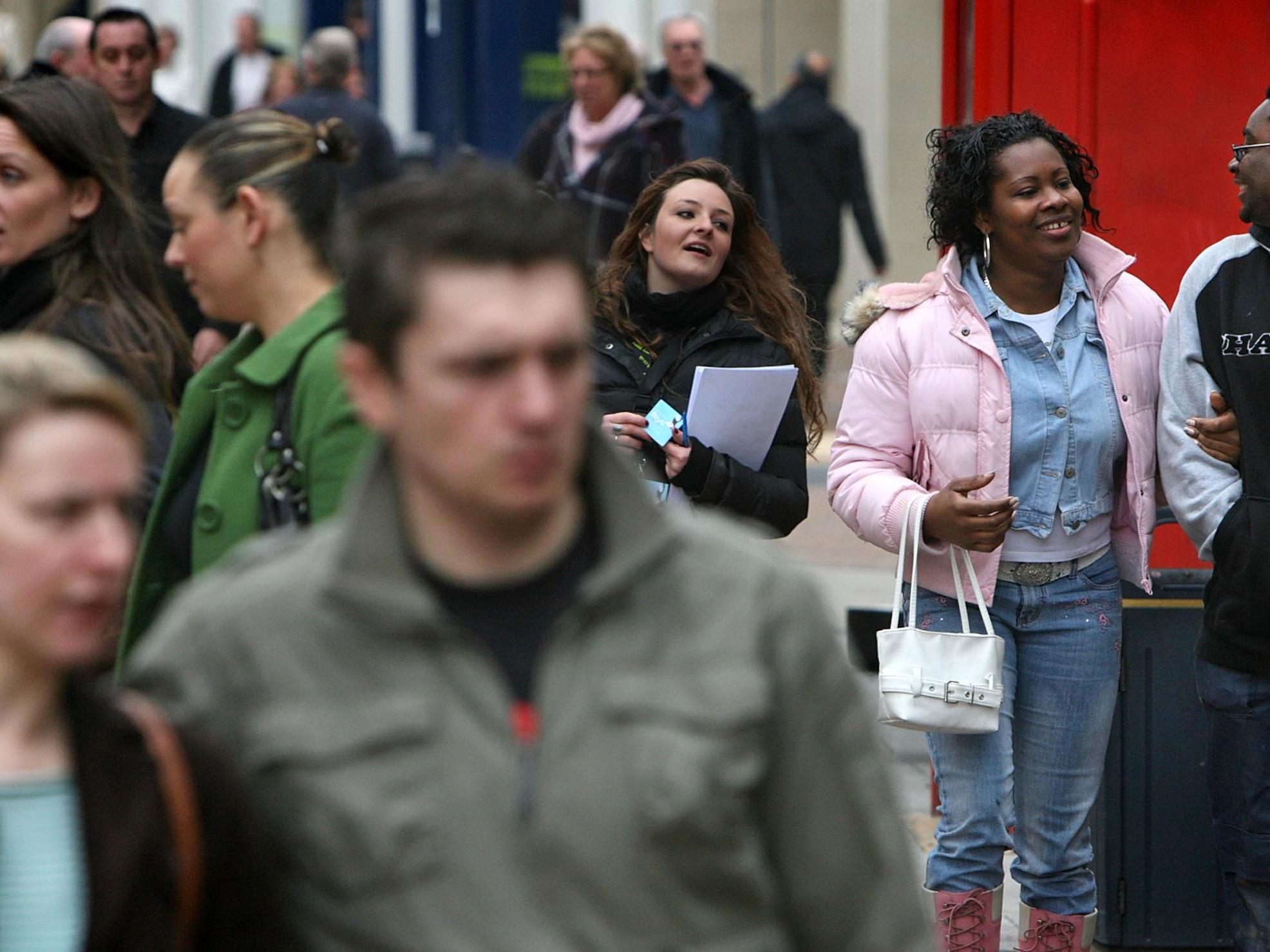Young white Britons have better mental health if they live in ethnically diverse areas, study finds
Researchers say white working-class neighbourhoods may be linked to poorer mental health among white children

Your support helps us to tell the story
From reproductive rights to climate change to Big Tech, The Independent is on the ground when the story is developing. Whether it's investigating the financials of Elon Musk's pro-Trump PAC or producing our latest documentary, 'The A Word', which shines a light on the American women fighting for reproductive rights, we know how important it is to parse out the facts from the messaging.
At such a critical moment in US history, we need reporters on the ground. Your donation allows us to keep sending journalists to speak to both sides of the story.
The Independent is trusted by Americans across the entire political spectrum. And unlike many other quality news outlets, we choose not to lock Americans out of our reporting and analysis with paywalls. We believe quality journalism should be available to everyone, paid for by those who can afford it.
Your support makes all the difference.White British young people living in ethnically diverse deprived neighbourhoods have better mental health than those living in largely white working-class areas, according to a new study.
Researchers at University College London (UCL) investigated the interaction between neighbourhood ethnic diversity and mental health among teenagers for the first time. Their findings are based on more than 4,000 young people in England aged between 10 and 15.
The paper, published in Social Science and Medicine, found that mental health in the white British ethnic majority group was worse when they live in deprived “ethnically uniform” communities where their ethnic group was the vast majority.
Authors of the research said the findings had important implications for policy-makers looking to improve conditions in deprived neighbourhoods as they can be mindful that white working-class neighbourhoods may be linked to poorer mental health among white children.
Dr Stephen Jivraj, of UCL’s institute of epidemiology and health care and senior author of the research, said: “Our finding that the ethnic majority tend to have worse mental health when living in less ethnically diverse, deprived neighbourhoods is new.
“We hypothesised that areas where the proportions of similar ethnic groups were higher may operate as a shield against the negative effects of racial discrimination, but our results do not find evidence to support this.”
Experts pointed out that the diverse areas in themselves may not be the cause of better mental health among white British young people, but rather the public services, youth facilities, supply of transport and health services that make up diverse neighbourhoods.
Zubaida Haque, deputy director of the Runnymede Trust, said: “It may be that diverse neighbourhoods – which are more likely to be metropolitan – have more extra-curricular activities for young people, which keeps them occupied and happy, as well as better mental health and early intervention youth mental health services and better transport to visit friends, go to the cinema and so on than less diverse areas."
She added: “That’s not to say that diverse neighbourhoods don’t have positive benefits because of their diversity – for instance research has shown that people living in areas with the highest proportion of new migrants are less likely to hold negative attitudes towards migrants compared to areas which have smaller proportion of new migrants.”
Mental health outcomes were measured by capturing four areas of potential difficulty: emotional symptoms, conduct problems, hyperactivity-in-attention, and peer relationship problems.
White British youths living in neighbourhoods that are deprived and not ethnically diverse had a total difficulties score that was almost two points higher than those living in all other neighbourhoods, including deprived and diverse neighbourhoods.
Join our commenting forum
Join thought-provoking conversations, follow other Independent readers and see their replies
Comments